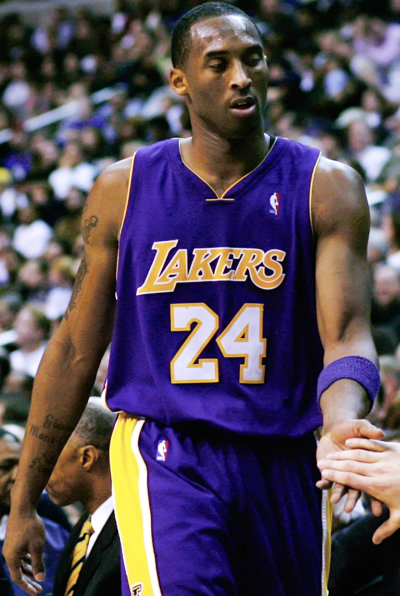Does a legend ever really die? Define legend.
A legend is an individual that inspires.
Kobe Bryant’s name stands prominently next to this term as a synonym.
Kobe Bryant, the legend, was killed Sunday in a helicopter crash in Calabasas, California. His daughter, 13-year-old Gianna, was also killed in the crash.
What defines his legendary status? Is it just his basketball career?
Of course, that’s a portion, but it’s not all.
So yes, acknowledged is Bryant the Philadelphia native, born on August 23, 1978.
The Bryant who became a nationally recognized basketball player following his career at Lower Merion High School, whose scintillating high school campaign would eventually lead to the retirement of his maroon and white jersey, which dawned the number “33.”
The Bryant who entered the National Basketball Association straight out of high school, spending his entire 20-year professional career with the Los Angeles Lakers. Entering the league in 1996, Bryant signed his first NBA contract at the age of 17 and became the youngest NBA starter in the history of the league at 18.
The world admires Bryant who rocked the number eight, winning three consecutive NBA championships (2000, 2001, 2002). Who would later transform to Bryant “24,” during the 2006-2007 season. The 6-6 guard won two consecutive NBA championships (2009, 2010) as number 24, rounding out his championship resume.
The nation honors Bryant who scored 60 points in his final NBA game on April 13, 2016. Both of Bryant’s numbers, eight and 24, were hung in the Staples Center in December of 2017.
Yet now, nearly four years after his retirement, people stretching many miles are celebrating his life.
“It is a tragedy when anybody dies young,” said Dave Friedman, voice of Winthrop Athletics. “For one of the greatest basketball players of all time to have his life cut short, in these circumstances, and with his daughter, is unthinkable.”
When talking about Bryant’s legacy, athletes and sports fans alike would be remiss if they failed to mention his philanthropic endeavors.
Bryant sought to advance education through his After-School All-Stars organization. He worked to provide a smooth transition to civilian life for veterans by presenting a $1 million check to the Call of Duty Endowment.
He promoted the growth of brands within the sports industry through the establishment of Kobe, Inc. The “Mamba,” as he was called, used his platform to become a prominent supporter of the WNBA and womens’ college basketball.
Bryant became an advocate for human performance through the Mamba Sports Academy.
Furthermore, and most importantly, Bryant was a husband and a father, who believed in the future of his daughters. Believing so much in his second-born, Gianna, that he schooled her in a way that undoubtedly shaped her to mock his playing style.
Her passion for the game of basketball sat her next to her father on that same plane Sunday travelling to a game–along with several others with the sport at heart.
“Being taught by the best, [Gianna] was going to be the best,” said Olympic Gold Medalist, Basketball Hall of Famer, and current Winthrop women’s basketball coach Lynette Woodard.
In the face of his dazzling records, numerous awards, and high honors, Bryant was to only be remembered by his statistics. Kobe Bryant was a world-class player who dominated arenas of sports and life through some of the best methods possible, and he forever envisioned the bigger picture.
“From his game, to his persona, to his achievements, Kobe will always be remembered,” said Friedman. “This is a loss that the basketball community and beyond will mourn for a very long time.”
Bryant utilized his prowess to break down barriers at the core of the world’s communities: That is what makes him a legend, with a legacy that will last forever.
“To say he’s a legend and an icon, those are the only words we get to use,” Woodard said.
Photo courtesy of Keith Allison/ Flickr




